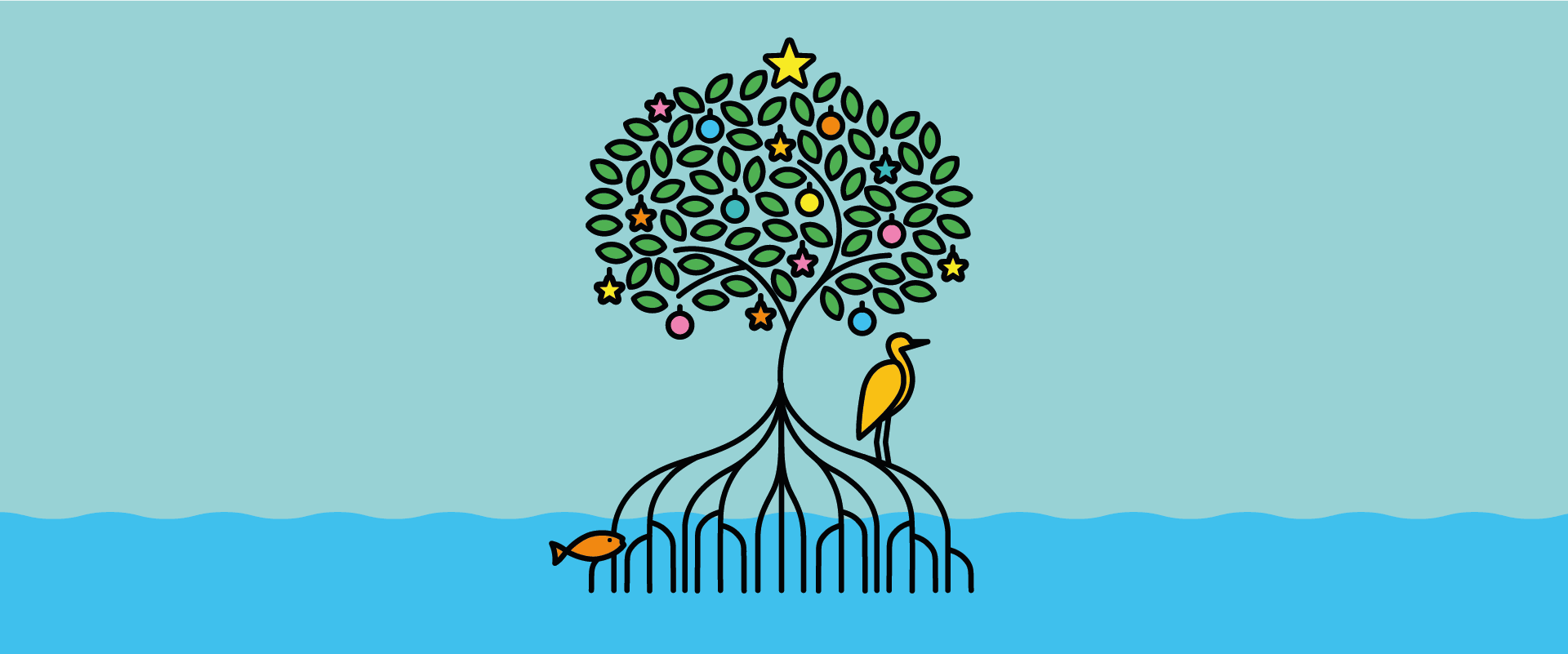We’re branching out this festive season
We’re planting 50,000 mangrove trees in Madagascar

12 十二月 2019
This festive season we’re trying a more environmentally conscious approach to gift-giving.
We’ve teamed up with Tree-Nation to create a 50,000-strong mangrove forest in Madagascar. Tree-nation works with planting projects worldwide to offer individuals and companies the opportunity to easily plant trees, support local populations, and offset their carbon footprint. Their work is transparent, easy to follow, and collaborative. Our forest in Madagascar will be planted by Tree-Nation in collaboration with Eden Projects.
Over the course of this holiday season, Peach will sponsor the planting of every one of these 50,000 yellow mangrove trees. An advantage of working with Tree-Nation is that it will be possible to track the evolution of the forest, including up-to-date information about the number of trees planted so far, what growth phase they are in, and the carbon impact so far.
Simon Cox, CEO of Peach said: “Over the last decade we’ve massively helped reduce the carbon footprint of the video supply chain by removing tapes, discs and couriers. We’re proud to have been at the forefront of this move to online — and this Christmas we want to try to do something more.”
Before Peach, the delivery of TV commercials to broadcasters was managed with tapes dispatched by couriers. This entailed the use of many vehicles, often across great distances.
In October 2011, we teamed up with independent pollution monitoring association, Citepa, and conducted research into the environmental impact of removing tapes, and making ad deliveries digital in France. We found that compared to physical deliveries, digital deliveries of TV commercials generated 97% CO²e1 per dispatch. Whilst the servers and transmissions in 2011 used for digital deliveries generated small amounts of CO²e, physical deliveries generated far more at every stage – from the creation of the tape itself, to the significant emissions generated by couriers carrying that tape.
We are now reaching almost 100% digital deliveries in most countries around the world, and we’re proud to have been at the forefront in making this change happen. Japan is one of the last major markets in the world moving from tape to digital, and we were the first company to digitally deliver a TV commercial in Japan.
Back to 2019.
We chose to support mangrove planting projects in Madagascar. They are efficient at storing carbon and have also been severely impacted by deforestation and forest degradation. Charcoal production, wood collection for cooking, construction and other activities have left them severely depleted. But these hardy, fast-growing trees are making a comeback, and we’re delighted to be a part of that.
The Ceriops Tagal — or yellow mangroves — that we will plant are critical to the support of animal habitats, land reclamation, and local folklore. They protect against flooding for Madagascar’s incredibly diverse animals and plantlife - the vast majority of which cannot be found anywhere else in the world. Plus, they pack a terrific environmental punch. Over the course of 20 years, each of our mangrove trees will offset around 40 kilos of carbon. This means that as a whole, our forest could offset around 2,000,000 kilos, or 2000 tonnes of carbon, over two decades.
•••
Some further reading:
- A little more info from Tree-Nation
- Some research around the threat of deforestation and related activities to Madagascar’s biodiversity
- The importance of forests in protecting Madagascar’s wildlife
- Mangroves’ role in protecting coastlines and carbon storage
- A little more on mangroves’ capacity to store carbon
1Carbon dioxide equivalent, a measure for estimating how much global warming a given type and amount of greenhouse gas may cause, using the functionally equivalent amount or concentration of carbon dioxide as the reference.
Categorised as:




 arrow_right
arrow_right